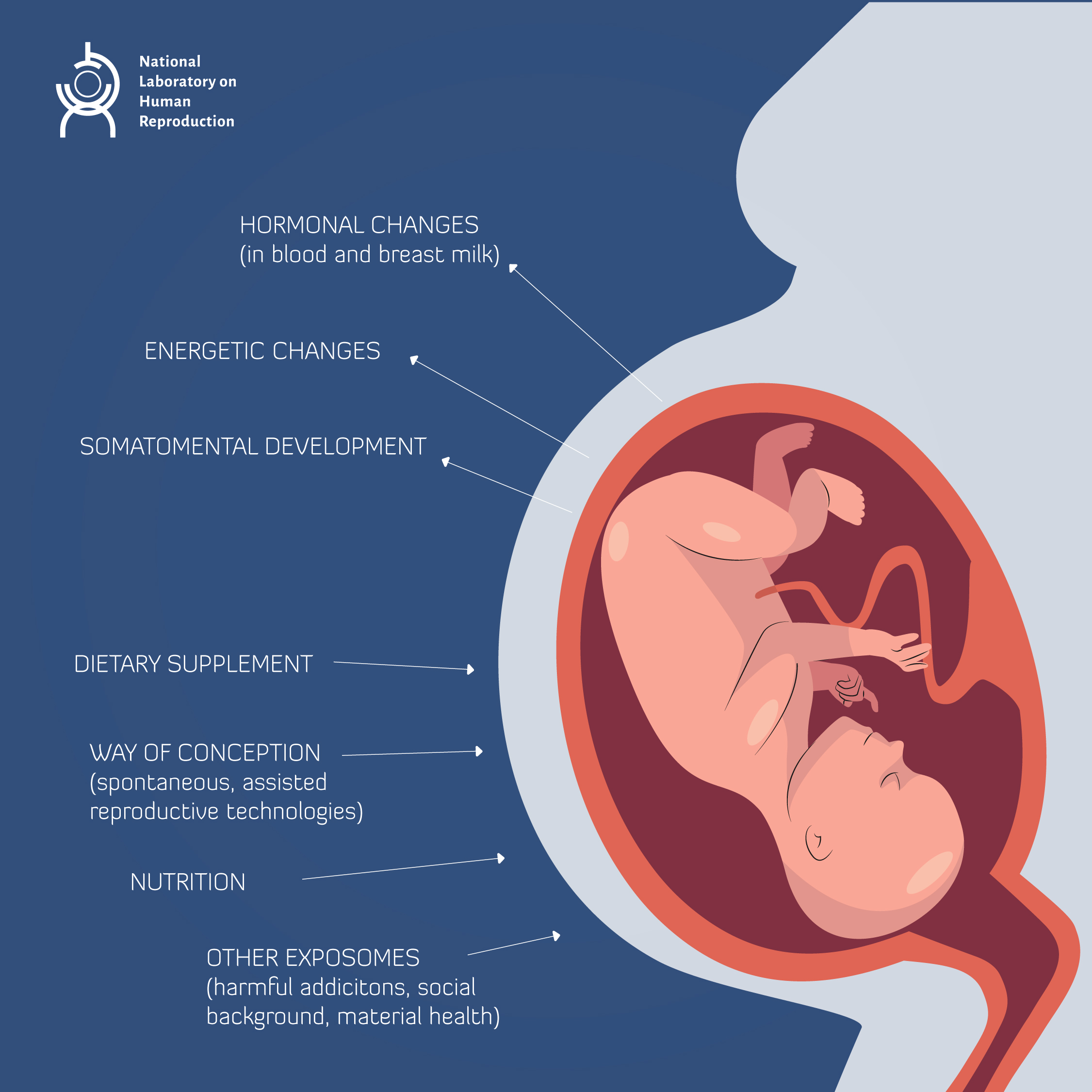Transgenerational Effects of Assisted Reproduction (ASTRAGEN) Research

The first 1.000 days of life –from conception to the age of two – play a key role in the somatomental development of the child, as well as in establishing long-term health.
The ASTRAGEN research group of the National Laboratory of Human Reproduction investigates the transgenerational effects of this critical life period, with particular focus on the role of environmental factors such as the way of conception (spontaneous or with assisted reproduction technologies), maternal nutrition and supplement intake during pregnancy, breastfeeding, infant feeding, maternal conditions like obesity, and diabetes mellitus.
Our research aims to explore how these factors influence the hormonal, epigenetic, and metabolomic pattern of the offspring and mother’s breast milk, and how these changes are linked to the child’s somatomental development during the first 1.000 days.
The mechanisms discovered through this research could contribute to the early screening of non-communicable chronic diseases (e.g., obesity, type 2 diabetes mellitus, cardiovascular diseases), which are among the greatest health challenges of our time. The results would enable personalized prevention strategies and thereby improve the long-term health of the future generations.
For more information and details, please visit our website.
